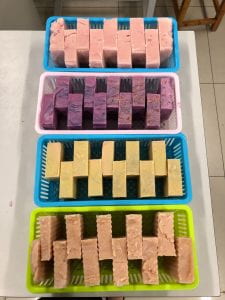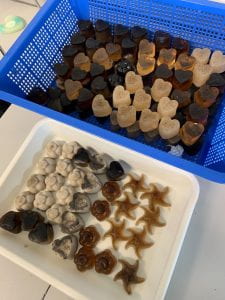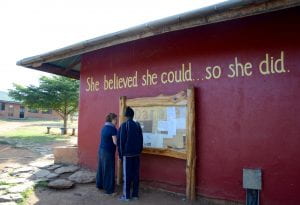LO7: Recognise and consider the ethical implications of choices and actions.
Being with Daraja Academy Global Concern since I was in Grade 6, I’ve been involved in most of their sales days or events where we have tried to fundraise. The product that we would most often fundraise with are these hand-crafted bags that we would buy in bulk every time someone from the team goes to Kenya. Although this was working fine for us for many years, our school has released some new fundraising policies that requires us to make some big changes this year. Through their newly designed vetting process, my school wishes to make Global Concerns held accountable for any unintended consequences of how we are sourcing our products. For example, the bags could have been designed poorly paid labour.
Coming to realise that I truly had no clue about how the bags were made and whether they were sustainable really opened my eyes as to the other things I was ignoring. As such, I was quite excited to embark on this journey of getting a new fundraising product for our service.
Currently, our 2 highest contenders for potential product alternatives are:
- Coffee Beans from African Coffee Roasters
- DIY Natural Soap from Raw Beauty
Coffee beans from African Coffee Roasters are from 5 African countries, Kenya, Ethiopia, Rwanda, Uganda and DR Congo. It is produced in the first certified coffee roasting facility in Kenya and the company is completely transparent in their production process in order to ensure good working conditions and high product quality. However, because the manufacturing facility is all the way in Kenya, in spite of it being a good product that will meet high demand in Singapore, the amount of pollution generated from transporting it so far made create large negative implications in the long run.
On the other hand, Raw Beauty is a service group working within our school campus and has been doing their own investigation into how they are sourcing their dyes and other material so that the soap they can create will be sustainable from end to end (since students who signed up voluntarily are making the soap). It also has a decent cost of production because we would incur no cost for transportation and Raw Beauty is requesting a manageable amount of the ingredients. In my opinion, compared to the African Cofffee Roasters, the DIY soap from Raw Beauty seems like a much more realistic solution that would still generate a good amount of demand from the school parents.
I’m looking forward to continue pushing the team through the application process. Even though we may not raise money this year, the effort we’ve put into this application process will allow us to sustainably fundraise for many years in the future.




